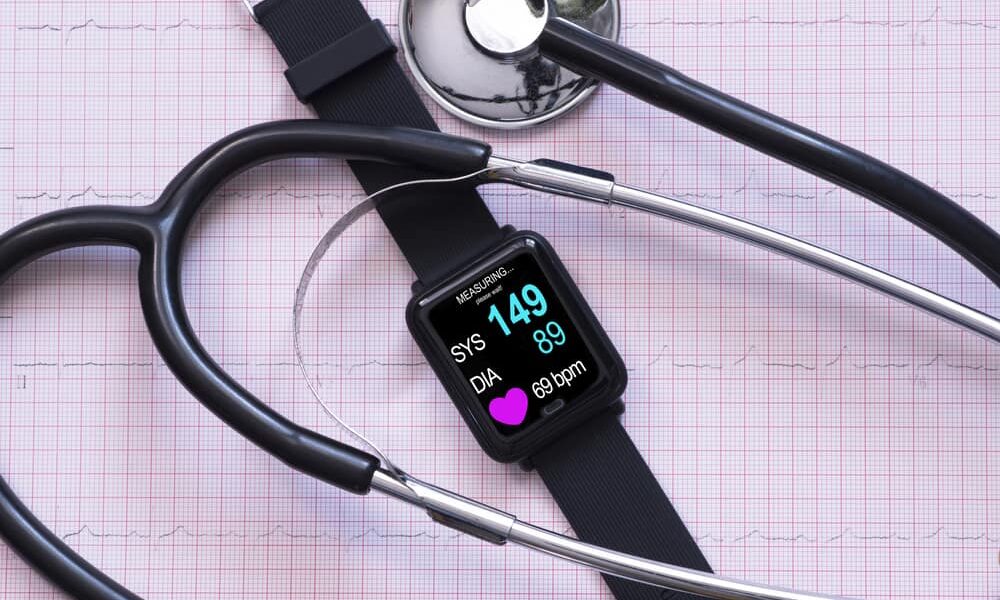Fitness trackers have become increasingly popular in recent years as more people prioritize their health and fitness. These devices are designed to monitor various metrics related to physical activity, including heart rate, steps taken, and calories burned. Some newer models even include features for measuring blood pressure. However, many people wonder if these devices are accurate enough to be relied upon for monitoring their blood pressure. In this article, we will explore this question in depth and provide an objective analysis of the accuracy of fitness trackers for measuring blood pressure.

Important Points:
- Fitness trackers are not medical devices: It’s important to note that fitness trackers are not medical devices and should not be relied upon for diagnosis or treatment of any medical condition, including hypertension. While they can provide useful information about your physical activity levels, they are not designed to replace traditional medical devices like blood pressure monitors.
- Fitness trackers use optical sensors to measure blood pressure: Many newer fitness trackers use optical sensors to measure blood pressure. These sensors work by shining a light through your skin and measuring the amount of light that is absorbed or reflected by your blood vessels. While this technology is promising, it is still relatively new and may not be as accurate as traditional blood pressure monitors.
- Accuracy can vary between different models and brands: The accuracy of fitness trackers for measuring blood pressure can vary widely between different models and brands. Some models may be more accurate than others, depending on factors like the quality of the sensors, the calibration of the device, and the algorithm used to calculate blood pressure.
- Blood pressure readings can be affected by external factors: Blood pressure readings can be affected by a variety of external factors, including stress, caffeine consumption, and physical activity levels. This means that even if your fitness tracker is accurate, your readings may not be representative of your true blood pressure if you are not in a relaxed state.
- Regular calibration is important: To ensure the accuracy of your fitness tracker’s blood pressure readings, it is important to regularly calibrate the device. This involves comparing the readings from your fitness tracker to those from a traditional blood pressure monitor and making any necessary adjustments to the calibration settings.

FAQ’s:
Can fitness trackers replace traditional blood pressure monitors?
No, fitness trackers should not be used as a replacement for traditional blood pressure monitors. While they can provide useful information about your physical activity levels, they are not designed to diagnose or treat medical conditions like hypertension.
Are fitness tracker blood pressure readings accurate?
The accuracy of fitness tracker blood pressure readings can vary widely between different models and brands. Some models may be more accurate than others, depending on factors like the quality of the sensors, the calibration of the device, and the algorithm used to calculate blood pressure.
Can external factors affect blood pressure readings?
Yes, blood pressure readings can be affected by a variety of external factors, including stress, caffeine consumption, and physical activity levels. This means that even if your fitness tracker is accurate, your readings may not be representative of your true blood pressure if you are not in a relaxed state.
How often should I calibrate my fitness tracker?
To ensure the accuracy of your fitness tracker’s blood pressure readings, it is important to regularly calibrate the device. This involves comparing the readings from your fitness tracker to those from a traditional blood pressure monitor and making any necessary adjustments to the calibration settings. The frequency of calibration will depend on the specific model and manufacturer’s recommendations.
Can fitness trackers detect hypertension?
No, fitness trackers are not designed to detect hypertension or any other medical condition. They are simply tools for monitoring physical activity levels and providing insight into overall health and fitness.

Pros:
- Convenience: Fitness trackers are convenient and easy to use, making it easy to monitor your physical activity levels and track progress towards fitness goals.
- Cost-effective: Fitness trackers are generally more affordable than traditional blood pressure monitors, making them a more accessible option for people who want to monitor their blood pressure regularly.
- Motivation: Fitness trackers can be a great source of motivation, providing real-time feedback on physical activity levels and encouraging users to stay active and healthy.
- Portability: Fitness trackers are small and portable, making them easy to carry with you wherever you go. This means that you can monitor your physical activity levels and blood pressure readings no matter where you are.
- User-friendly: Most fitness trackers are user-friendly and easy to navigate, even for people who are not tech-savvy. This means that anyone can use a fitness tracker to monitor their physical activity levels and blood pressure readings.

Con’s:
- Limited accuracy: While some fitness trackers are accurate for measuring blood pressure, many are not. This means that users may not be getting accurate readings, which could lead to false alarms or missed opportunities to detect and treat hypertension.
- Reliability issues: Fitness trackers can be prone to reliability issues, such as battery life problems and software glitches. This means that users may not be able to rely on their fitness trackers for accurate and consistent readings.
- Limited features: While fitness trackers are great for monitoring physical activity levels, they may not have all of the features necessary for accurate blood pressure monitoring. For example, some fitness trackers may not have the ability to detect arrhythmias or provide alerts for dangerously high or low blood pressure readings.
- Calibration issues: Calibrating a fitness tracker for accurate blood pressure readings can be difficult, and many users may not know how to properly calibrate their devices. This can lead to inaccurate readings and missed opportunities to detect and treat hypertension.
- Inability to diagnose or treat medical conditions: Fitness trackers are not medical devices and should not be relied upon for diagnosis or treatment of any medical condition, including hypertension. While they can provide useful information about physical activity levels and blood pressure readings, they are not a substitute for professional medical care.

Final Verdict:
In conclusion, fitness trackers can be a useful tool for monitoring physical activity levels and providing insight into overall health and fitness. However, they should not be relied upon for accurate blood pressure monitoring or the diagnosis or treatment of any medical condition. While some fitness trackers may be accurate for measuring blood pressure, many are not, and calibration can be difficult. For accurate blood pressure monitoring, it is best to use a traditional blood pressure monitor or consult with a healthcare professional.
The Truth About Fitness Trackers and Blood Pressure Accuracy











No Comment! Be the first one.